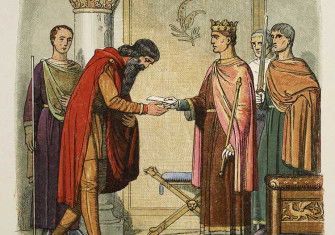The Anglo-Irish Treaty of 1921
Michael Morrogh explains the significance of Lloyd George's answer to the Irish question.

The story is a familiar one. Two sides battling in out in Ireland, nationalists and Unionists. The British government uneasily in position as the sovereign power. Public opinion abroad generally is on the nationalist side, though largely ignorant of the small print of events. The British line, at first, is that the disturbances result from a small minority of ‘gunmen’, unrepresentative of the majority of Irishmen.






